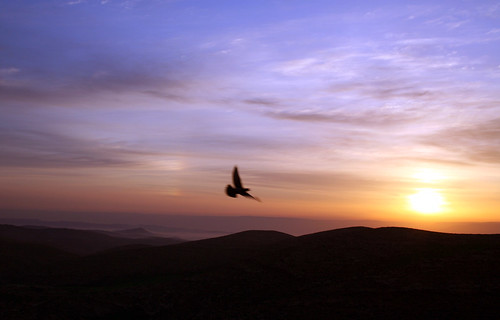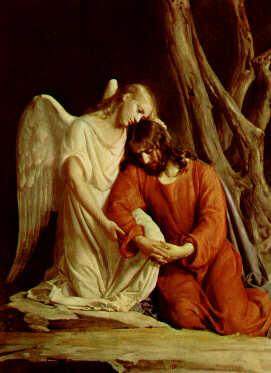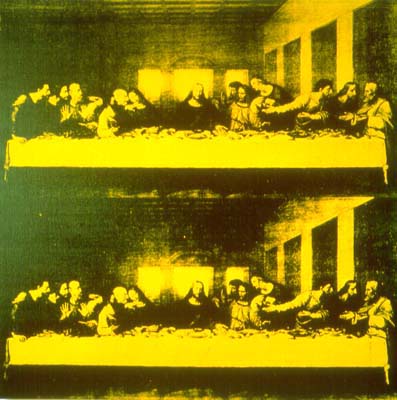A rattle at my door awakens me. It is not even dawn, but even so, I am afraid I am too late. When I open the door, a small dove is on the stones outside. It is larger than most, and purest white in colour. As soon as I see it, the dove lifts gently into flight, hovering above my head and then gliding into the narrow street. I gather my robe and put my shawl around my face to conceal it, leaving only the eyes. Under my robe I am clutching the sack with the oil and spices. Their fragrance is strong, I fear I will be discovered because of them. I enter the road and do not look back, hurrying toward the edge of Calvary.
In the dark, it is hard to know my way. I am still not used to Jerusalem - roads and buildings which lean only shadows out to meet me. Once, I cannot see where I am going and stop, my heart beating. The fluttering of wings guides me forward. My dove is my guide - it seems to know where I am headed and takes me there. When I think about this I start to feel safe, I know the Lord has sent me this winged angel.
We reach the edge of the mount, the dove and I. The crosses are bare, all the dead have been removed. Smoke and ash mix with mist - some of them have burned in the night, there is the smell of rotting flesh. I draw the robe closer and follow the dove around the edge of the hill and out again into the fields near the cliffs. After a while I recognize where I am. Approaching the tomb, my step falters, I fall short.
The stone in front of the sepulchre has been rolled away. Immediately, I fear the worst and start to weep. The dove has hovered and landed on my shoulder. I cannot seem to move. I am rooted like a tree in front of the open tomb, weeping and crying out in anger. The claws of the dove's feet dig into my shoulder and give me pain. I step forward and it flutters ahead of me, disappearing into the tomb.
I walk inside and collapse in grief. Immediately it is all confirmed: they have taken my Lord. His shroud is here, even the towels of blood I kept with him. It is all there, but he is not. Wherever they have taken him, they haven't even kept him wrapped. It is unbearable. I cry and wail and and weep as I have not done yet in the whole time of Jersualem. I am unable to console myself. I am kneeling in the midst of the imprint of his body, holding the shrouds. I cannot see or think for weeping. My cries echo in the dark space and crush me.
 The flutter of wings returns to my ear. I expect the bird to light again on my shoulder but it is gone. I lift my eyes and see the watered image of divine shapes, holy ones, thin as the air and wholly there to my touch. I stand to reach out to them. Their wings are like silk. Then I sink again to my knees and am unable to lift my head.
The flutter of wings returns to my ear. I expect the bird to light again on my shoulder but it is gone. I lift my eyes and see the watered image of divine shapes, holy ones, thin as the air and wholly there to my touch. I stand to reach out to them. Their wings are like silk. Then I sink again to my knees and am unable to lift my head."Woman", one of them says to me. The voice is like a heavenly song. "Why do you weep so."
I fall into fresh laments and cannot speak. One of the holy ones lifts out a feathery hand and raises my chin. Immediately, I am calmed by light.
"They have taken my Lord," I manage. "And I don't know where they've laid him."
They speak to me but I do not understand. The rush of sound is in my ears again, like wings and like air. My garments lift a little. The shroud and the towels move and I take hold of them quickly, clutching them to myself.
At the entrance to the tomb, there is a shadow. A gardener has come, perhaps hearing my pleas and cries. The shimmering sound intensifies, I can barely hear or see. The gardener enters and tries to approach me.
"Please sir," I say. "Where have you taken my Lord? Is it you who took him? I must anoint him." I take out the sack from under my robe. It has become wet and limp from my crying and my anxious body. I start to unpack it, sobbing anew. I want to prove to him my intentions, I need to show him I mean well. Oh that I could bribe him. I speak in a torrent even as I thrust my hand into the sack. "I have oil in here. And the best spices. Please let me see him."
My body is curled over in grief and crying, the sack on the ground. I have no light, I am blinded by light but have no light. I cannot see the light and I cannot see the sack and the things in the sack.
Again, this grip of my shoulder. The bird returned? The holy ones? The gardener? I must not be deterred. Let me pull out the oil!
"Mary," the presence says. The vial of oil slips from my hands and rolls on the ground. Immediately my sobs are calmed and I am flooded with peace.
I rise slowly, turn slowly.
Before me is my Lord. He is transformed, though he is himself. He is not real, though he is the same man. He is shimmering, though I can see his hands.
"Teacher!," I cry out and fall upon him in amazement.
He catches me, holding me at a distance from him. But even his arms on mine are familiar and warm. His face is transformed and it is also momentarily sad.
"I cannot," he whispers. "I cannot hold you. Do not try to hold me."
I stare into his eyes, which are like orbs radiating out the cosmos both in front and behind. I am calmed at once by them.
"I am on my way to my Father. Go and tell the others that you have seen me. And tell them that I am ascending to my Father."
I am still transfixed. I cannot move or blink or speak. I want only to follow him.
"Take me with you," I say.
He shakes his head.
"Do as I tell you." He says it in the firmest, gentlest voice. His arms on mine, holding me back, are trembling. He is not yet gone, and neither here. He is something inbetween.
I let go of him and step back. I don't know what to say. He is smiling at me.
"Go," he whispers. But I cannot move. We hang there in a breath of silence.
 "A dove led me here," I say then. He nods.
"A dove led me here," I say then. He nods."A temple dove," he says and even as he says it, he is fading gently. I cry out and reach forward to stop him.
The light lingers, but he is gone. I look about the tomb, the holy ones are also gone. It is black again, it is just me again.
The tomb entrance is wide open. Outside, the dawn of the new world has begun and risen, stretching out to the ends of the earth.














